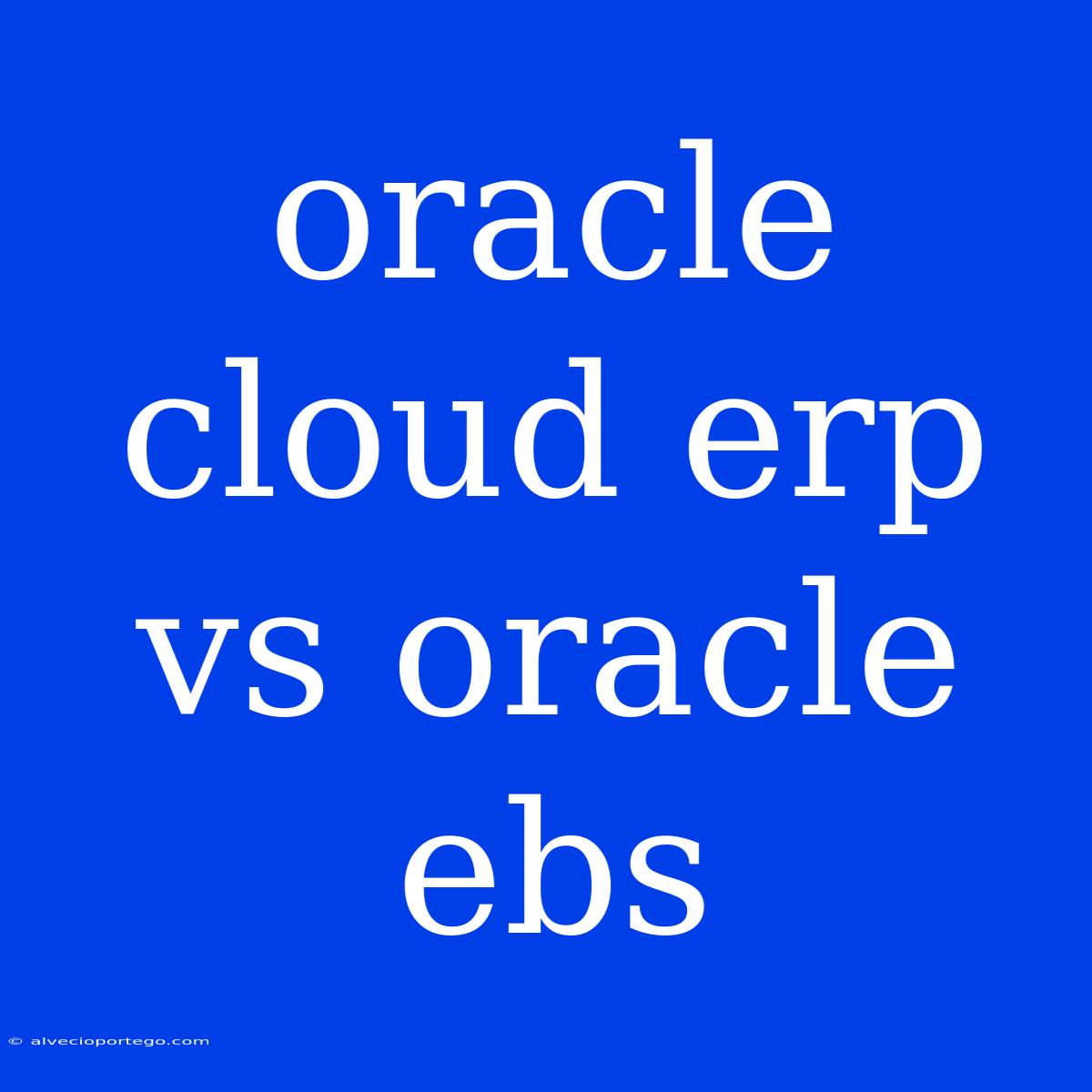Oracle Cloud ERP vs. Oracle EBS: Which is Right for Your Business?
For businesses running Oracle applications, the decision of whether to stay with Oracle E-Business Suite (EBS) or transition to Oracle Cloud ERP is a significant one. Both offer powerful features and capabilities, but they come with distinct advantages and disadvantages. Choosing the right solution depends on your specific business needs, priorities, and resources.
Here's a comprehensive comparison to help you make the informed decision:
Oracle E-Business Suite (EBS)
Strengths:
- Mature, proven solution: EBS has been a mainstay for enterprises for decades, offering robust functionality across various industries. Its stability and reliability are well-established.
- On-premise deployment: This gives you complete control over your data and infrastructure, with the ability to customize and configure the system as needed.
- Strong customization capabilities: EBS allows for extensive customization to meet specific business requirements.
Weaknesses:
- High upfront costs: Deployment and maintenance of EBS can be expensive, requiring significant investments in hardware, software licenses, and skilled resources.
- Complex upgrades: Upgrading to newer versions of EBS can be a lengthy and resource-intensive process.
- Limited cloud capabilities: EBS offers limited cloud integration, making it difficult to leverage the full potential of cloud technologies.
- Lack of innovation: EBS focuses on maintaining existing functionalities rather than incorporating modern cloud-based features.
Oracle Cloud ERP
Strengths:
- Cloud-based platform: Provides scalability, flexibility, and lower maintenance costs compared to traditional on-premise solutions.
- Rapid deployment: Cloud ERP offers faster implementation times, allowing you to quickly realize value.
- Constant innovation: Oracle Cloud ERP is constantly evolving with new features, functionalities, and updates, keeping you at the forefront of technology.
- Lower overall costs: Eliminates the need for significant upfront investments, with a subscription-based pricing model.
- Improved user experience: Cloud ERP offers a modern, intuitive interface with simplified workflows and better mobility.
Weaknesses:
- Less customization: Compared to EBS, Oracle Cloud ERP offers fewer customization options.
- Security concerns: Some businesses may be hesitant to move sensitive data to the cloud due to security concerns.
- Limited integration: Integrating Cloud ERP with existing legacy systems may require additional effort and investment.
Key Considerations for Choosing Between Oracle Cloud ERP and EBS:
- Business needs and priorities: What are your key business objectives and how will each solution help you achieve them?
- Budget and resources: Consider the upfront costs, ongoing maintenance, and required skills for both solutions.
- Time frame: How quickly do you need to implement a solution and see results?
- IT infrastructure: Do you have the expertise and resources to manage an on-premise solution?
- Future plans: What are your long-term goals and how well does each solution align with your vision?
Conclusion:
The choice between Oracle Cloud ERP and Oracle EBS depends on your individual business circumstances. For organizations with limited resources and a desire for rapid implementation and ongoing innovation, Oracle Cloud ERP may be the better choice. However, if you require extensive customization and have a robust IT infrastructure, EBS might be a more suitable option.
Ultimately, a thorough analysis of your specific needs and priorities will help you make the most informed decision.

